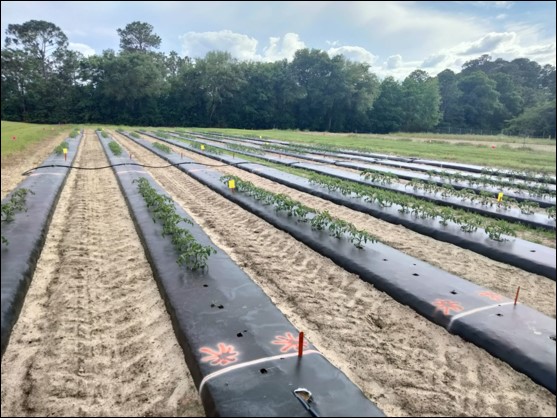By Clint Thompson
University of Georgia (UGA) research has shown that biochar applications help vegetable farmers improve their soil’s profile.

Ted McAvoy, an assistant professor and vegetable production Extension specialist, has studied biochar’s use on the UGA Tifton Campus. He talked about its impact in vegetable production
“Biochar is charcoal essentially. Unlike other organic matter from cover crops and chicken litter and compost is it doesn’t decompose,” McAvoy said. “It’s going to fix carbon. You can apply it once, and it lasts hundreds or thousands of years. It’s not something you have to redo over and over again to reap the benefit as what would be the case with compost. You’d apply it yearly or a cover crop you would apply yearly. With the warm humid environment, it breaks down. This is a stable form of carbon.”
Conjunction with Fertilizer

Producers who are contemplating biochar need to understand its impact is only used in conjunction with fertilizer. McAvoy said it does not possess many nutrient properties. It helps reduce leaching in the soil, aids the soil in holding onto nutrients and make available for the plant.
“It’s more improving soil characteristics, drainage, binding for nutrient retention. That’s why we paired it with chicken litter and conventional (fertilizers). We wanted to see if it would work for organic and if it would work for conventional systems. Could conventional growers switch to organic if it was actually cheaper? It’s to improve soil characteristics which should hold onto nutrients better, improve growth and yields,” McAvoy said.









